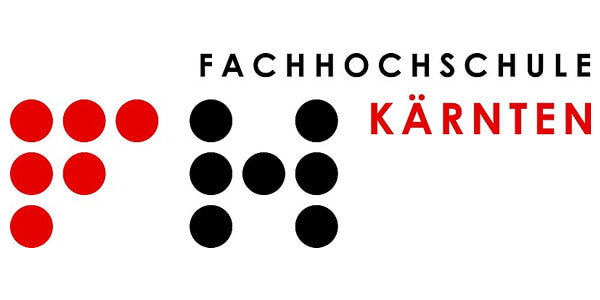Integrated Systems and Circuits Design
- Abschluss: Master of Science in Engineering (M. Sc.)
- Umfang: 4 Semesters, 120 ECTS Punkte
- Studienart: Präsenzstudium, Berufsbegleitend
- Bildungsfeld: Engineering, Technik & IT
- Unterrichtssprache: Englisch
- Website: www.fh-kaernten.at
Reaching new application areas
For about five decades, integrated circuits (IC, microchips) have now been the key technologies for electronic systems in many application areas, ranging from data processing to telecommunication and automobile electronics. In this domain, an unprecedented development has taken place from the assembly of the first planar ICs with two transistors in the year 1961 to today’s integrated processor components with up to a billion transistors on a single chip.
New challenges in designing integrated systems and circuits
An ending of this development is not yet foreseeable and Very Deep Submicron (VDSM) fabrication technologies (with structure sizes that are smaller than 14 nm) will offer the possibility to integrate even more complex systems.
These developments are not merely the prerequisite for even more reliable and cost-efficient system solutions, yet they will also open up a lot of new application possibilities. Due to the new requirements and especially due to the enormous complexity of such solutions, not only new fabrication technologies have to be developed, but also new challenges in the design of integrated systems and circuits have to be faced. Among these challenges are modeling on different levels of abstraction, system level verification, low-power design, circuit design in new technologies, high frequency circuits, intelligent solutions for power electronics as well as an increase in design efficiency. The master degree program ISCD – Integrated Systems and Circuits Design provides the necessary knowledge to master these challenges.
Profile
Applied R&D and cooperations with national and international academic and industrial partners guarantee, that education at Carinthia University of Applied Sciences is up to date and students will be well prepared for their career.
Semesters 1 – 3 offer 70 ECTS of mandatory courses in the fields of integrated systems design and modeling, design methodology, analog and digital circuit design, integration and fabrication technology as well as a mixed-signal project. Semester 3 offers a selection of advanced courses from which 20 ECTS have to be selected.
The practical aspect of this master degree program is emphasized by a project module, spanning semester 1 to 3. Students design an integrated circuit in small teams and implement a testchip. After fabrication, samples of the testchip will be evaluated in the lab using state of the art test equipment.
The master thesis is done in cooperation with industry or at Carinthia University of Applied Sciences in semester 4. Work on the thesis is accompanied by regular thesis seminars.
Qualification requirements and regulations
Engineering & IT is an unbelievably fascinating field of applied sciences. This area is characterized mainly by creativity, innovation and design. Engineering & IT is furthermore a rapidly developing area, crucial for the economic development of a region.
The students of the School of Engineering & IT should demonstrate strengths in the following areas:
- technical understanding,
- reasoning power,
- good English, mathematics and computer skills,
- creativity,
- enjoyment of innovative developments.
The Bachelor Degree Programs of the CUAS School of Engineering & IT can generally be sought without subject-specific educational background. Lots of interest, commitment and of course the possession of a general university entrance qualification are sufficient.
Key learning outcomes
Graduates of the master degree program Integrated Systems and Circuits Design:
- have broad knowledge in the design and modelling of highly complex integrated systems;
- have detailed knowledge of the principle design methodologies for integrated circuits using modern CAD tools;
- have special knowledge in circuit design of analog, digital and mixed signal integrated circuits using state of the art Very Deep Submicron (VDSM) CMOS fabrication technologies;
- have knowledge in special elective topics in integrated systems and circuits like RF CMOS design, integrated sensors, smart power technologies, arithmetic circuits or system on chip architectures;
- have had practical experience in the IC development: all graduates have designed a mixed-signal IC from specification to evaluation of fabricated testchip samples in the lab.
UNI-Profil
FH Kärnten (Villach)
FH Kärnten gemeinnützige Gesellschaft mbH A-9524 Villach, Europastraße 4
Telefon: 05 90500-0 Website: www.fh-kaernten.at
